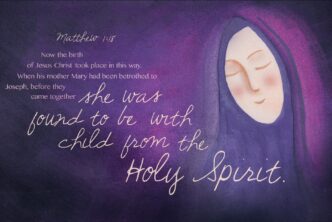The book of Esther is a classic story: the peasant who becomes a Queen and saves her people. But what was the author’s theological intent behind the book? Is there a single overarching theme or message for today’s readers to walk away with?
Commentators are divided. Some, such as Adele Berlin see the book as entirely secular—the exiles live completely without God. Others, such as the New American Commentary’s author see faithful service to God throughout.
But what if there were a third option? One which acknowledges some of the difficulties of both points? What follows is my struggle to reconcile two separate viewpoints.
I want to explore the idea that the book of Esther is a treatise on God’s loving response to practical atheism—that is, God’s people living as if he doesn’t exist.
Observations on Esther and Mordecai
In his commentary on Esther, Anthony Tomasino notes several concerning elements:
“The name Mordecai almost certain derives from Marduk, who was a storm god and chief god of the Babylonian pantheon.”
Furthermore,
“Mordecai ordered Esther to conceal her Jewishness, to blend into the world around her. It is a counsel that will contribute later to her success and the Jews’ triumph over their enemies. But is concealment a righteous response to a potentially hostile environment?”
Also,
“It is apparent from this verse that unlike Daniel, Esther does not request a kosher diet: to do so would make it impossible for her to conceal her Jewish identity, as she is said to do in the very next verse.”
Another striking element is that God is not named once throughout the entire book.
Here are two more reasons for the argument that the story of Esther presents God’s loving response to practical atheism:
Mordecai’s refusal to bow down
Many commentators have seen Mordecai’s refusal to bow down to Haman as a religious observance: refusal to to worship anyone other than YHWH.
However, the text provides a different answer:
“After these things King Ahasuerus promoted Haman the Agagite” (Esther 3:1).
Thanks to the power of Logos Bible Software, I can search for every time the term “Agagite” is used in Scripture and I see it recurs throughout Esther, every time that Haman is introduced. Why would the author try and continually remind us of Haman’s ethnicity?
Most interpreters through the ages have understood the text to mean that Haman was a descendant of Agag, king of the Amalekites (a summary of these sources can be found in Moore 1971, 35). Given the apparent connection of Mordecai with the line of Saul, the connection between Haman and the line of Agag seems poetic and darkly foreboding.
Another Logos search on the root “Agag” shows me that the primary story around Agag comes from 1 Samuel 15. Here, Agag, king of the Amalekites, dies as Samuel hacks him to pieces in front of Saul.
Looking at the family tree of Saul, we see that he too is a descendant of Kish. Mordecai, you may remember, was introduced in Esther 2:5 as a “son of Kish, a Benjaminite.” It is reasonable then to conclude that by refusing, Mordecai was simply defending a long-standing ethnic animosity, rather than a religious conviction.
The lack of reference to Passover
In Esther 3:13, we read: “Letters were sent by couriers to all the king’s provinces with instruction to destroy, to kill, and to annihilate all Jews, young and old, women and children, in one day, the thirteenth day of the twelfth month, which is the month of Adar, and to plunder their goods.”
But as Tomasino notes: “The thirteenth day of the first month, the month of Nisan, would be the day before the Jews were to celebrate Passover.” Rabbis for generations since have made the clear connection between Purim and Passover. But it is striking that there is no explicit reference to the Jewish holiday. However, if these exiles were living a life without consideration for God, it makes sense to ignore the holiday.
Modern implications for Christians
In the face of all these considerations, it seems possible that these Jewish exiles, living in the shadow of their captor’s palace, are brought back to YHWH by the imminent threat of death.
What would this mean for today’s Christians? In today’s climate, it’s easy to be a so-called “cultural Christians.” People who claim to believe, but do not truly seek to serve the one true God.
Let’s take a lesson from Esther and Mordecai and daily ensure that our actions are not on our own behalf, but rather are intentionally in the service of our Lord and Savior, Jesus Christ.
Study Esther for yourself using the entry on Esther from the Evangelical Exegetical Commentary Series.




